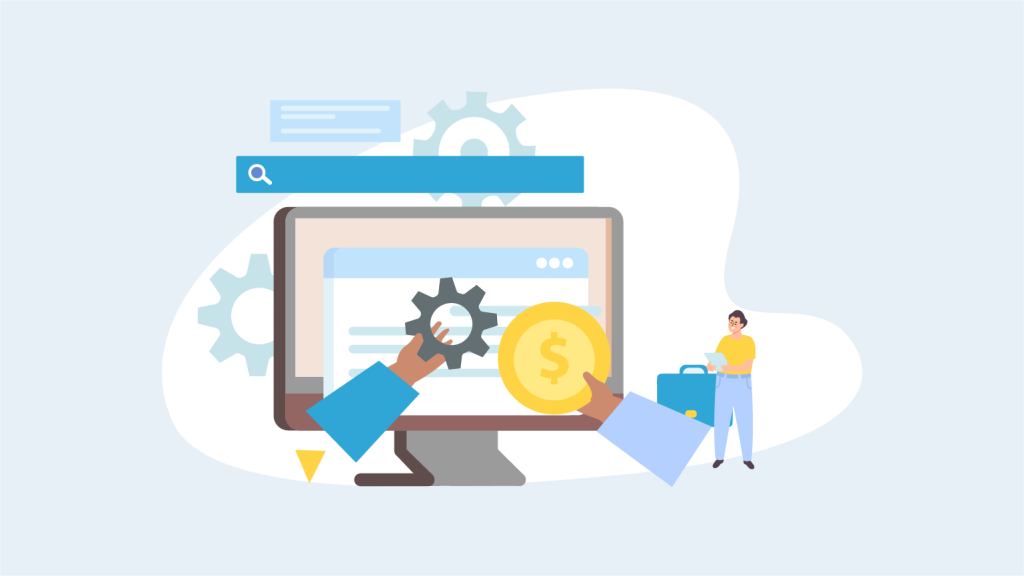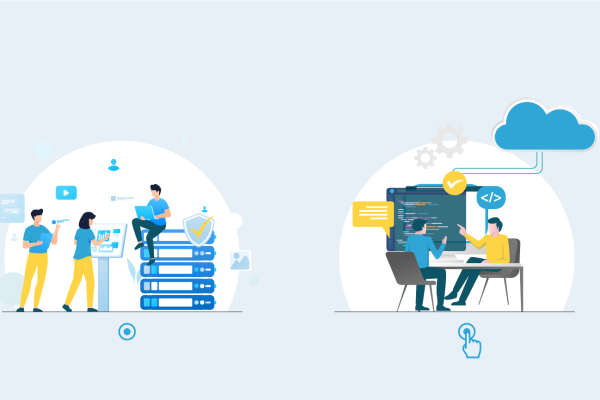The terms have truly emerged from their functions. On-premise help desk software helps with application access and data storage on the premises through a server. Whereas cloud software refers to a set of servers where the user can store and access data remotely and then access it from anywhere without any space or time restraints, To avail of the cloud help desk software solutions, the user has to pay a fee. While on-premise software is maintained by the in-house team, cloud software is looked over by a third party.
Pros of Using On-Premise Help Desk Software

Let us understand the benefits of on-premise help desk
The on-premise option is usually a preference of enterprises that have to regulate and look after humongous volumes of confidential data. Here are some of the potential benefits of using it:
Grip Over Security and Privacy
On-Premise Help Desk software gives the user the liberty to have a tight fist on the entire security and privacy domain. You could also stick to the industry protocols regarding particular data with the on-premise system. In a nutshell, the security is stringent and can be customized according to the needs of the enterprise.
Immediate Access to File
On-premise help desk software is not dependent on any third-party regulations. The enterprise has complete, round-the-clock access to its data. The workforce is also eligible to modify their information and data at any time, along with restricting access to critically confidential data.
Data Processing and Operations Control
Local software storage gives the enterprise complete control for running updates and emergency backups. Also, the enterprise is in complete control of its data processing, restraining or restricting data or even shutting them down all at once with panoramic control
Cons of Using On-Premise Help Desk Software

It is not all good for on-premise help desk software, as there are certain downsides to the same.
Depreciated Scalability
With the change and dynamicity of client needs, the need for data storage and processing changes accordingly. However, within-premise data storage, the enterprise faces flexibility issues as it can store only a certain amount of fixed data. This limited capacity of on-premise software can bar the growth of the enterprise.
High Cost
Most enterprises today, avoid using on-premise data software systems because the installation and maintenance costs of this type soars high. With every new incoming update, the company has to spend more on configuration. The sky-high operational and upfront costs pull back the overall growth of the company.
On-premise software relies on local servers, which clearly means that if there is a failure at any single point in the network, the whole system becomes dysfunctional.
Benefits of Using Cloud-Based Software Desk Solutions

Cloud-based software desk solutions are often the premium choice for enterprises today. Featuring ease of use, faster deployment, and less stressful working, it has the following top-notch benefits:
Low Cost
The fees for accessing the cloud-based software desk solutions depend on the number of users or space used for data storage. The enterprise can choose a suitable plan according to their needs. Moreover, there is no need to pay every time for new updates or new hardware installations. The pricing model is flexible and affordable. No additional maintenance cost is a huge benefit for enterprises.
Swift Deployment
Setting up cloud help desk software for your enterprise takes much less time. It is all about purchasing the licenses and opting for the setup manager. Since the third-party cloud service provider will do it all for you – installation and API documentation, there is hardly any need for the core enterprise team to work on it. The service provider will integrate the database and have the system running in no time.
Flexibility
Cloud help desk software is easily scalable. You can always opt for more data storage and increased operations any time your growing company needs them, just by paying more. There is high flexibility to meet the ever-dynamic demands of the enterprise, and that is what makes it extremely scalable as an option.
Risks of Cloud Help Desk Software

Well, if you have been thinking that it is all a bed of roses for the cloud help desk software, there are some thorns in the bush as well. Let us explore them:
Privacy Issues
Though the service providers guarantee that there will be no privacy issues and often there are multiple written promises, you cannot be cent percent assured that there will never be any data leakage. After all, it is the whole team of the service provider that can have access to your files.
Dependent on the Service Provider
If there is practically any glitch from the end of the service provider, you won’t be able to access the files. High dependency on the service provider means you will always have to wait for them to resolve any emerging issues.
Which is better?

According to the needs of recent times, cloud-based help desk software is a better choice than on-premise help desk software. Most companies these days have a resource crunch and are truly looking forward to the best optimization of space and labor. Cloud-based software desk solutions are more accessible in terms of pricing and maintenance. Cloud-based software services also give an edge regarding performance because upgrades are automatically deployed in time. Also, cloud-based software services enhance the possibility of better team functioning as everyone is connected to the network.



Comments are closed.